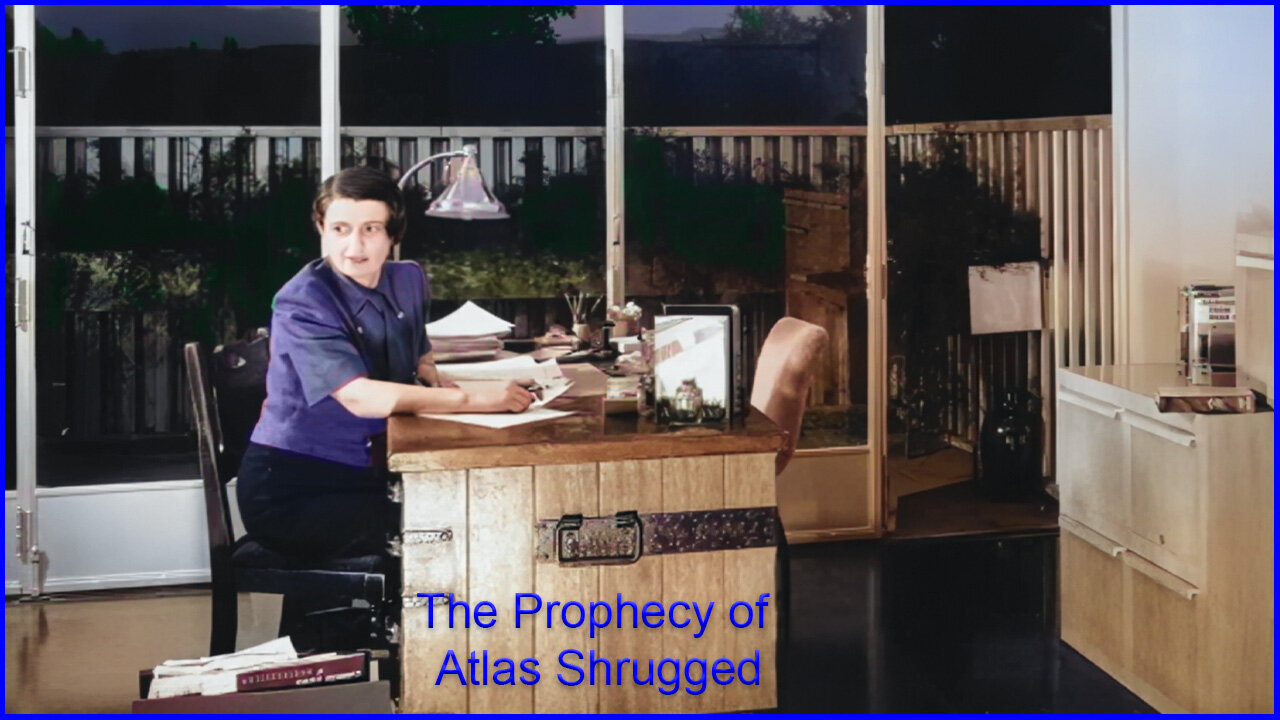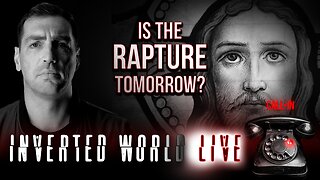Premium Only Content

'Ayn Rand - The Prophecy Of Atlas Shrugged' (1999) Documentary
'Ayn Rand: The Prophecy of Atlas Shrugged' is a documentary that seeks not merely to recount the history of a novel, but to assert the enduring, even prophetic, relevance of its ideas in contemporary American society. Directed by Chris Mortensen, the film positions Ayn Rand’s magnum opus Atlas Shrugged as a lens through which to view the modern political and economic landscape, particularly in the wake of the 2008 financial crisis. Rather than approaching the novel from a literary standpoint, the documentary treats it as a philosophical blueprint—a warning against the consequences of collectivism, overregulation, and the erosion of individual liberty.
The film weaves together interviews with academics, economists, politicians, and cultural commentators, most of whom are sympathetic to Rand’s worldview. It presents Rand as a thinker not simply ahead of her time, but as one who foresaw a grim convergence of statism, economic stagnation, and moral confusion—phenomena the documentary suggests are now playing out with alarming precision. The structure is built around Rand’s core philosophical tenets, particularly her championing of rational self-interest, free-market capitalism, and the sanctity of the individual mind against the encroachment of the collective.
Central to the film’s narrative is the figure of John Galt, the mysterious protagonist of Atlas Shrugged who leads a strike of the mind—an exodus of the productive elite from a society that exploits them. The documentary draws parallels between Galt’s fictional world and the real-world frustrations of entrepreneurs, engineers, and businesspeople who feel stifled by bureaucratic red tape and public scorn. In doing so, the film often echoes Rand’s own rhetorical style: confrontational, unapologetic, and dialectically oppositional.
However, while 'The Prophecy of Atlas Shrugged' makes a sincere attempt to connect Rand’s ideas to contemporary crises, it does so through a largely uncritical lens. The documentary eschews serious engagement with the many criticisms of Rand’s philosophy—whether ethical, political, or literary—in favor of affirmation and advocacy. For those already aligned with libertarian or Objectivist perspectives, this may serve as a validation. For others, particularly those who question the moral absolutism of Rand’s worldview or who perceive her celebration of self-interest as bordering on callousness, the film may come across as more polemical than persuasive.
Yet despite its ideological partiality, the documentary is valuable for understanding how Atlas Shrugged continues to function not just as a novel, but as a cultural and political touchstone. Rand’s enduring influence—on figures ranging from Alan Greenspan to Paul Ryan, and on movements from the Tea Party to certain strains of Silicon Valley libertarianism—makes the film relevant to any serious student of political thought, regardless of ideological alignment.
In sum, 'Ayn Rand: The Prophecy of Atlas Shrugged' is not a neutral documentary, nor does it pretend to be. It is a polemical artifact, a cinematic tract that seeks to reassert the urgency of Rand’s warnings in a time of perceived national drift. Whether one sees Rand as a prophet or a polemicist, a philosopher or a novelist with delusions of grandeur, the film underscores an undeniable fact: her ideas still command attention, provoke reaction, and refuse to fade quietly into the background of American intellectual history.
-
 0:41
0:41
Living Your Wellness Life
3 days agoThe Prime-Years Transition
1.01K -
 LIVE
LIVE
The Bubba Army
21 hours agoJimmy Kimmel's Back - Bubba the Love Sponge® Show | 9/23/25
2,347 watching -
 34:15
34:15
Actual Justice Warrior
2 days agoIlhan Omar CHEERS Charlie Kirk's Murder
49K74 -
 12:13
12:13
itsSeanDaniel
1 day agoMAGA Senator STANDS UP for Charlie Kirk and Free Speech
31.9K21 -
 30:39
30:39
Comedy Dynamics
1 month agoBest of Jim Breuer: And Laughter for All
128K4 -
 2:56:22
2:56:22
FreshandFit
14 hours agoDo Black People Deserve Reparations? DEBATE With Woman Propaganda.
200K193 -
 1:58:26
1:58:26
Badlands Media
17 hours agoBaseless Conspiracies Ep. 151: Netanyahu, Dual Loyalties, and the Kirk Connection
50.1K34 -
 4:55:05
4:55:05
Akademiks
10 hours agoYoung Thug Dissing YFN Lucci. Ready to Go back to Jail. Offset vs Cardi b
74.4K4 -
 2:02:45
2:02:45
Inverted World Live
11 hours agoIs the Rapture Tomorrow? | Ep. 111
128K48 -
 3:02:41
3:02:41
TimcastIRL
11 hours agoABC REVIVES Jimmy Kimmel After TERROR Attack On Station, Sinclair REFUSES To Air Show | Timcast IRL
280K176